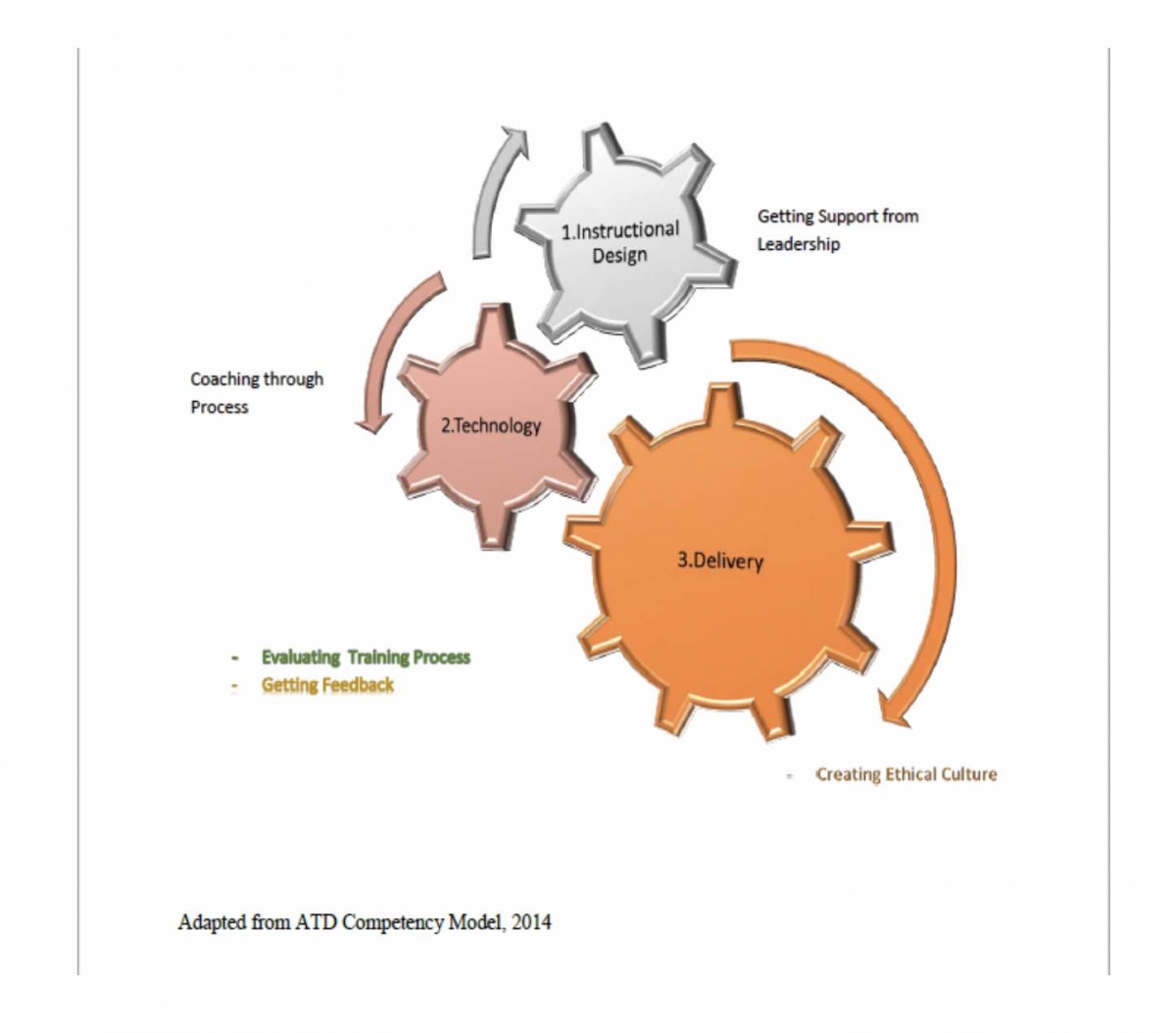Corporate training helps ensure employees remain qualified for their jobs. It is aimed at increasing productivity and quality, decreasing errors, improving job satisfaction, and lowering the turnover rate. One key type of corporate training is ethics training.
While all major Canadian organizations provide employees with some sort of code of conduct, compliance-oriented training, and other related support services, there is clearly room for improvement in corporate ethics training practices in general. Today, employees are under constant pressure to get things done in a fast and convenient way, which may cause them to bypass accepted practices or cut corners. Training—good training—is essential to ensure an organization’s core values are not among the corners being cut.
A Need for Soft Skills Training
Canadian organizations spend a yearly average of $800 per employee on various forms of on-the-job training, and those employees spend an average of 31 hours each doing it. Various surveys suggest that somewhere between a third and half of large organizations conduct formal ethics training for employees. Most people think of ethics training as a sort of code of conduct in an online format to be signed and submitted mostly at the beginning of a job. Thus, the training offered likely will not provide employees with a clear understanding of ethical issues they may face, especially as the world of business evolves.
Developing a skill set that enables employees to scrutinize and ideally resolve complex ethical issues in order to make good decisions and navigate ethical challenges is part of training programs in many companies. Such programs are particularly essential to the success of highly regulated organizations such as banks, insurance companies, and other firms in the financial services sector. But recent incidents of financial misconduct in Canada have raised questions in the media and public over whether corporations are properly preparing employees to prevent and deal with ethical issues in the workplace. Building a corporate ethics culture will not happen through a single training session. So what is missing in the process?
Researchers and practitioners agree that there are key skills related to ethics that simply aren’t adequately addressed in current ethics training programs. In the workplace environment, there are many conflicting demands and pressures. Resilience, critical thinking, empathy, self-awareness, and decision-making are important for our daily work lives. The Canada West Foundation in 2014 suggested that there is a growing need for development of soft skills to prepare a new generation of employees “who can work in teams, solve complex problems, be resilient, and make decisions.” Codes of conduct, hotlines, and standard compliance training tend to be too focused on a rather old-school approach to education that involves straightforward transmission of knowledge, rather than an approach that takes into consideration the personal, psychological, and interpersonal skills an employee will need in a complex decision-making situation.
Improving Soft Skills Learning
Training in soft skills requires a different approach. It is difficult to quantify and say to a person how ethically good he or she is. As an academic who spends time both in the classroom and observing the modern world of business, I see all too well that ethics is always more complicated in real life than it is in the classroom.
Traditional educational techniques are not terribly effective at reinforcing moral reasoning and ethical decision-making skills. The Association of Talent Development launched an updated 8-dimension competency model in 2014, which concentrates on training and development programs. We have developed a visualization (see below) for corporate ethics training based on that model, which suggests how “Soft Skills Learning” can improve through three key elements. This process will help companies to reshape their corporate training programs based on changes happening in the workplace.
- Instructional design
The redesign of corporate ethics training with a focus on personal/interpersonal skills requires an explicit recognition of the unique nature of adult learners, and in particular needs to focus on interactive skills that can be applied in a real-life situation. Given that compliance ought to be woven into an organization’s activities (rather than treated as an after-thought), compliance training activities likewise should be embedded in business workflows. New approaches such as Mary Gentile’s groundbreaking Giving Voice to Values will help give employees the ability to speak up about their own experiences and to understand how to act based on their own values when ethical challenges arise.

- Technology
Companies need to reshape their approach to adult learning by embedding learning technologies such as games, virtual labs, and mobile learning. Given what we know about the needs of the current crop of young workers—Millennials and post-Millennials who are immersed in digital culture and are familiar with digital-based learning—it is important that corporate training give them an opportunity to speak up and share their experiences. Using technology is fun, challenging, and can give the learners an opportunity to grow. The Ted Rogers Leadership Centre has established Gamelab to generate text games with graphics, which are designed to help corporations hone soft skills in ethically sensitive contexts with the purpose of redefining experiential learning for the 21st century.
- Delivery
Managing the adult learning environment is a key factor in corporate training. Employees should be encouraged to participate, and be motivated to debrief and provide feedback. These are considered essential elements of all training, and, in particular, interpersonal skills development. Employees should experience authentic environments without pressure. Executive officers who are responsible for staff development may move their attention to coaching, facilitation skills, strategic group sessions, and commitment to delivering the experience-based learning.
Needless to say, the clear and visible support of senior leadership for ethics training is essential. So is the provision of an adequate budget, and a broader attempt at establishing a culture that encourages and supports ethical conduct.
Organizational Support
Leaders should communicate ethical values consistently. The ethical judgments of employees may be influenced by pressure—explicit or subtle—from senior managers and supervisors. Improper leadership, lack of organizational support, and ethical sensitivity are among the key reasons for ethical lapses on the part of employees. Involving both leaders and employees in planning training sessions will decrease resistance to the change. The HR team, therefore, should routinely discuss ethical risks with senior management with a focus on designing and implementing approaches that incorporate the principles of modern approaches to adult education, including more cooperative and experiential approaches.
Corporate Culture
Corporate ethics cannot occur in isolation. An effective corporate ethics program fosters ethical behavior in a practical way by influencing organizational culture. Building an ethical climate can empower ethical behavior within organizations. And a greater emphasis on corporate culture should lead to greater confidence in the effectiveness and efficiency of corporate ethics programs. For example, the TD Group focused on “the importance of a strong ethical culture” in the Code of Conduct and Ethics for its employees and directors as a guideline.
Needs Assessment and Evaluation
Numerous obstacles must be overcome in the process of establishing an effective corporate ethics training system. Assessing the time required, the resources to be devoted, and the level of collaboration between ethics experts and training specialists are among the major challenges. Providing strategies that measure employees’ attitudes toward ethical issues is also a significant gap in traditional approaches of corporate ethics training. Finally, bringing modern evaluation techniques to the table enables companies to integrate compliance, ethics risk management, and corporate culture systematically.
Sahar Ahadi, Ph.D., is a research associate at the Ted Rogers Leadership Centre (TRLC) at Ryerson University and founder of Talent Strategy HR Management Consulting based in Ontario, Canada. She holds an MA in Adult Education and Professional Development from Shahid Beheshti University in Iran, and received her Ph.D. in Human Resource Development from University Putra Malaysia. Before joining TRLC, she spent two years as a postdoc research fellow at the Department of Education Policy, Organization, and Leadership at University of Illinois at Urbana-Champaign. Ahadi is Human Resource and organizational behavior professional with an extensive background in designing, conducting, and evaluating training and development programs for organizations using structured on-the-job training, online training, and blended learning in Canada, the U.S., Iran, and Malaysia. She also has collaborated on research projects in the fields of corporate training, workplace soft skills development, instructional design, and digital-based-learning. For more information, visit: http://www.ryerson.ca/tedrogersschool/trlc/our-people/faculty-and-staff/SaharAhadi/




